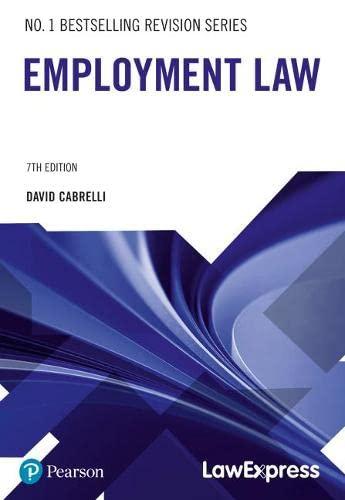Question
In California, Proposition 8 was placed on the ballot in order to outlaw same-sex marriages. The legality of the proposition was challenged in the federal
In California, Proposition 8 was placed on the ballot in order to outlaw same-sex marriages. The legality of the proposition was challenged in the federal trial court in the Northern District of California. Noting the great interest in the case and recognizing its social and political significance, the presiding judge suggested televising the trial at least within the courthouse in San Francisco where the trial was located. Later the judge, in consultation with the Chief Judge of the Ninth Circuit, suggested widening the broadcast field to include all courthouses in the Ninth Circuit. Those who supported the proposition opposed the plan to televise the trial and attempted to get awrit of mandamusto prevent the broadcast. The Ninth Circuit denied thewrit, but the U.S. Supreme Court reversed the decision and stopped the broadcast indefinitely. The Supreme Court stated that it suspended the broadcast to protect witnesses who might otherwise be threatened or harassed. The ethical issue here is not the morality of Proposition 8. Rather, the question is whether a trial of this transformative significance should be broadcast or "gagged" as the Supreme Court ruled. Using both utilitarianism and rational ethics (SeeChapter 1), analyze the decision made by the U.S. Supreme Court and decide whether the Supreme Court's decision can be defended using either theory. Explain your rationale using each theory. [See: David R. Fine, "Television Trials,"The National Law Journal, January 25, 2010, p. 38.]
Step by Step Solution
There are 3 Steps involved in it
Step: 1

Get Instant Access to Expert-Tailored Solutions
See step-by-step solutions with expert insights and AI powered tools for academic success
Step: 2

Step: 3

Ace Your Homework with AI
Get the answers you need in no time with our AI-driven, step-by-step assistance
Get Started


